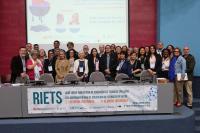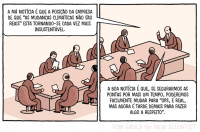Ted Marmor will be at ISAGS headquarters talking about the challenges for universal health systems
While the World Health Organization debates the strategy for universal health coverage – based on the extension of the service package – with its member states, the South American Institute of Government in Health (ISAGS), an organism part of UNASUR (Union of the South American Nations), receives the visit of Theodore Marmor, Professor Emeritus Yale University and a defender of universal health systems. On November 12, at the Institute’s headquarters in Rio de Janeiro, Marmor will present the conference “Challenges for universal health systems on the 21st century”, which will be broadcasted online at 11am (GMT-3) in English through the link tedmarmor.isags-unasur.orgwith simultaneous translation for Spanish and Portuguese.
Ted Marmor is an international reference in the studies of health policies, has taught for 30 years in Yale, and has over 200 articles and 13 books published; besides many essays published in major newspapers such as the New York Times, the Washington Post and the Wall Street Journal. The professor also takes part on the Bill of Health blog, from Harvard Law School. In his expositions, he criticizes the North American health system, based on private health insurance. With reference to the reform of the health sector in the United States, Marmor has made negative considerations, sustaining that “president Obama missed a great opportunity to frame universal health insurance as a moral right.”
Besides addressing the North American system and its complexities, Marmor will counterpoint it with universal health system models, grounded on integral, equal and free access. Based on the experiences of Canada and of Western Europe countries such as Germany, England and Holland, the lecturer will present the challenges inherent to reforms, public financing and to the regulation of the private health market.
The conference is part of ISAGS’ initiative to foster the discussion on the development of universal health systems in South America. The defense of universal systems was the basis for the creation of the South American Health Council and it is a different concept from that of universal coverage, which is focused on the provision of a minimal service package.
In October, the Pan American Health Organization (PAHO) has concluded the elaboration of the document about strategies for universal coverage after national consultations with countries of the region. Six UNASUR countries (Argentina, Bolivia, Brazil, Guyana, Paraguay and Uruguay) have had their consolidated reports published by the PAHO, and they have positioned themselves with criticisms to the strategy. After the last debate on the document, one of the achievements reached was the inclusion of the term “access”, as a measure to avoid the idea of minimal service packages, not insisting on the issue of integrality. In May 2015, the theme will be addressed during the World Health Assembly.
After the conference, Ted Marmor will join a debate with the participants. Those who are interested can send their questions by e-mail (comunicacao@isags-unasur.org), Twitter (@isagsunasur) or Facebook (/isags.unasursalud).
Beyond the conference
Ted Marmor’s conference is the starting point for the workshop “Strengthening the State, Regulating the Market: Challenges for UNASUR Universal Health Systems”, which will be hosted by ISAGS from November 12 to 14 with the participation of representatives for the Health Ministries of the 12 South American nations. One of the activities will be composed of a presentation of the regulation models for private health markets of the countries of the Bloc, based on the guidelines elaborated by the Institute.



